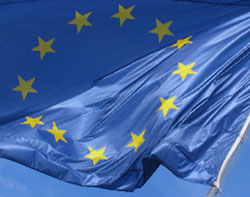The European Parliament has voted in favour of a new patent law to provide one regulation and one court to cover inventions across the European Union (EU).
Currently EU citizens can either apply for a national patent in their own country or a classical European patent, which protects them in the bundles of countries they want the cover in.

However, the new unitary patent will enable any submitted invention to be covered and protected in the same way across all participating states, rather than having to go through separate processes.
The vote has been a long time coming, following several years of debate between member states and a lack of consensus in forming a single patent system to function across all EU countries.
Italy and Spain have not signed up to the EU patent agreement, claiming issues with how the translation of the regulation was conducted between languages did not meet their approval.
The patent wars rage on Facebook and Yahoo end patent battle with advertising partnership deal Court to review Apple, Samsung patent verdict Ericsson takes Samsung to court over patent dispute Microsoft wins third German patent victory over Google Motorola technology
However, now 25 states have agreed to the regulation, it is on the road to becoming law. Tomorrow, the proposal will be handed to the Committee of Permanent Representatives in the European Union (Coreper) and, if agreed on, it will then go to the council of ministers on 20 December, before being signed off in February 2013.
Before it becomes official, each country will have to ratify it into their national law. Afterwards, the system will be in place and Italy and Spain can join at a later date if they decide to.
As well as the regulation, courts will be set up so any patent issues will go directly to the specialists, rather than through national justice systems. So far, three courts have been named in Paris, Munich and one in London that will specialise in pharmaceuticals.
“We were happy with the deal struck by the PM, David Cameron, to secure one of the courts' location to be in London,” said a spokeswoman from the UK Intellectual Property Office (IPO). “This is good as it secures highly skilled jobs.”
It has taken so long to get here. Today is a great step
Intellectual Property Office
“It has taken so long to get here that today is a great step,” she added. “It will give EU businesses a more equal footing with other global players, such as the US and China, which already enjoy a single patent environment.”
The single European system could prove of benefit to UK software companies who have had run-ins with patent authorities for years.
UK law states a patent can only be granted to something proven as an invention and, in the relevant act, it claims computer programs do not count. Since 2009, the IPO has been granting some software patents but many companies have gone straight to the classic European patents to avoid such issues.
Now, these technology firms will be able to head for one patent covering them across the 25 states without these hurdles.
Jonathan Zuck, president of the association for competitive technology, also claimed it would boost business for small and medium enterprises (SMEs).
“A single patent system will give innovative entrepreneurs the platform to become major contributors to the sustainable economic recovery of Europe,” Zuck said.
“It will not only offer SMEs more exposure to national markets, it will also standardise and harmonise patent law to give them legal certainty, protecting them from fragmented national legislations.”





